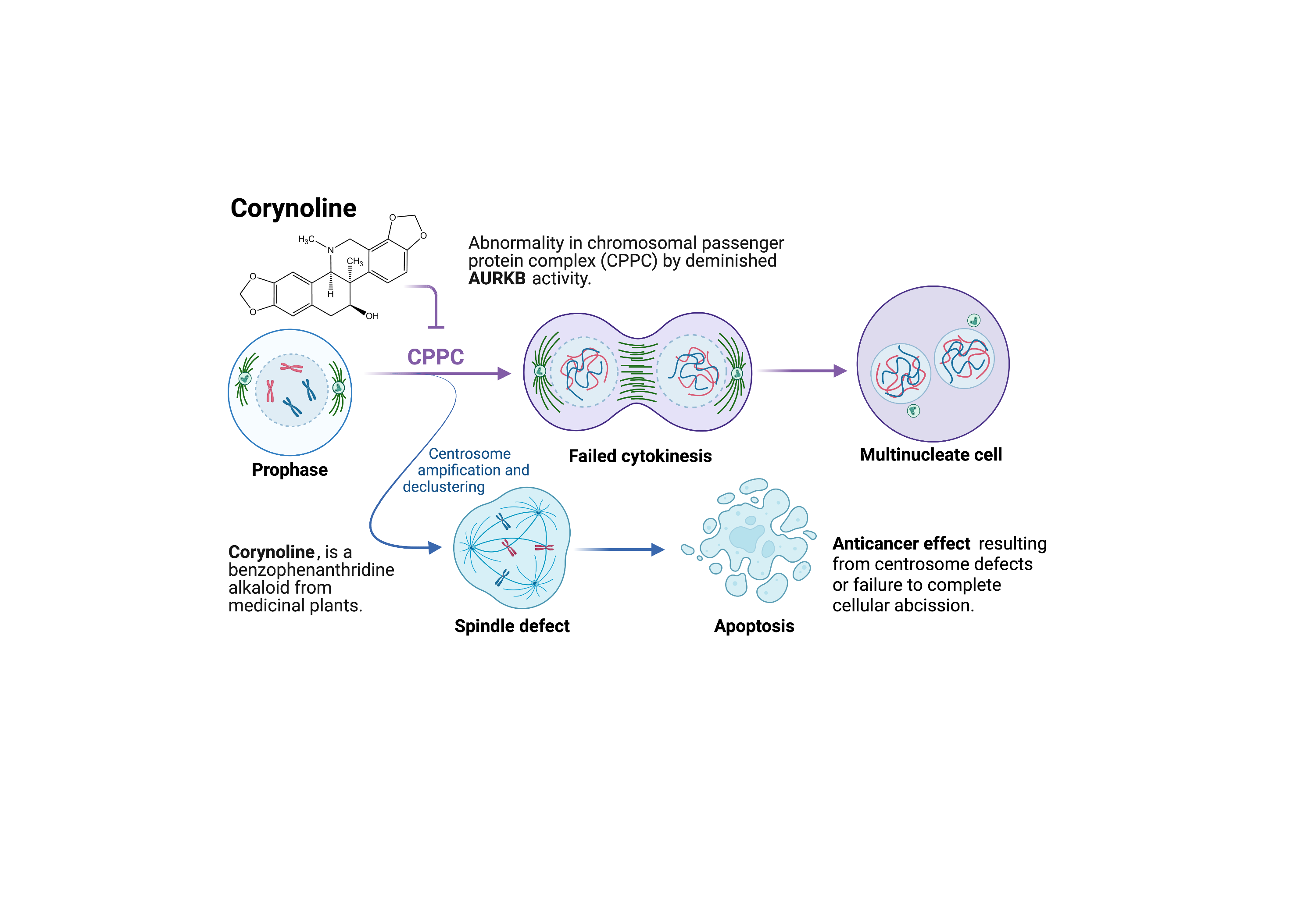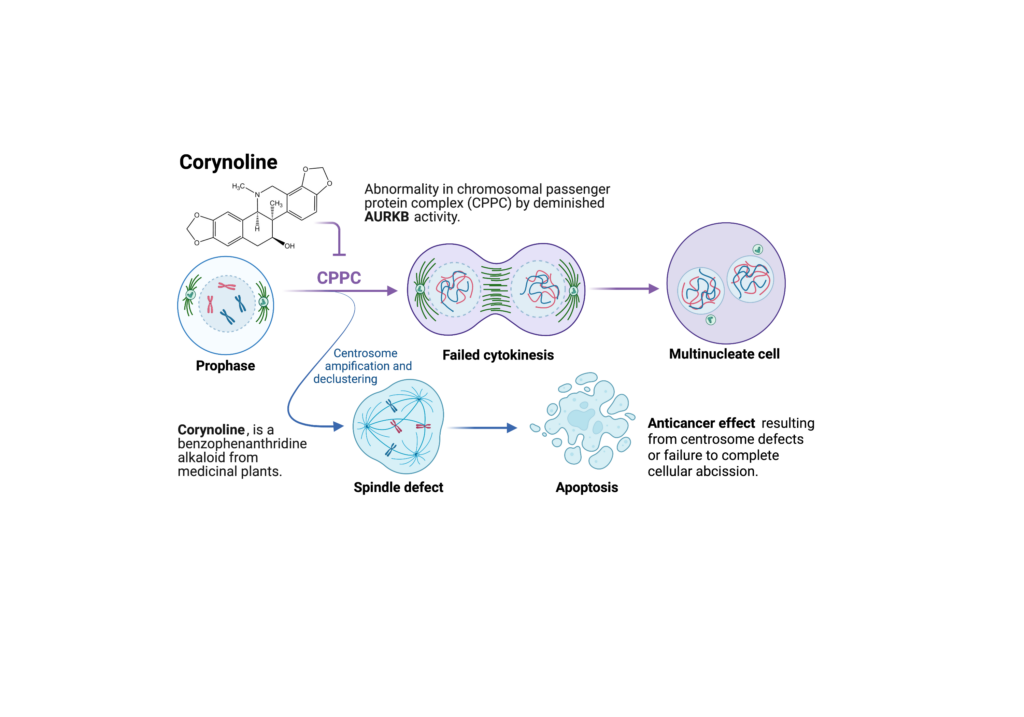Chengdu, China, January 17, 2022
Anticancer Bioscience Identified Phytochemical Corynoline as a Prototype Structure for Developing Centrosome-declustering Therapeutics
Chengdu, China, January 17, 2022 – The Discovery Oncology (DO) group and the Natural Product Drug Discovery (NPDD) group of Anticancer Bioscience (ACB) collaboratively published another interesting study that uncovers a novel mechanism by which a natural compound, corynoline, could selectively kill cancer cells while sparing dividing normal cells. The study entitled “The phytochemical, corynoline, diminishes Aurora kinase B activity to induce mitotic defect and polyploidy” was published on January 17th, 2022 in a peer-reviewed journal Biomedicine and Pharmacotherapy with an impact factor 6.52.
With a strong desire to develop a new generation of anti-mitotic drugs that target mitotic regulators rather than mitotic spindle microtubules, ACB has established a unique mechanism-informed, image-based high-throughput screening assay. Using this assay, ACB has previously found a lead compound, corynoline, from its powerful propriety existing natural product library and has published the finding in a peer-reviewed journal Phytochemistry Letters. In the current study, ACB scientists have elucidated a previously unknown mechanism underpinning the cytotoxicity of corynoline. Specifically, corynoline exhibits dual activity, including amplification of centrosomes in mitosis and declustering centrosomes as an attractive anticancer strategy.
Dr. Thaddeus Allen, VP of Translational Biology and Business Development and the corresponding author of the study, states: ”corynoline could serve as an ideal lead compound to develop the next generation analogs with improved potency, selectivity, and in vivo bioavailability. Such analogs inspired by a phytochemical may be useful therapeutics to combat cancer and other hyperproliferating disorders.”
“Our team discovered that corynoline potently blocks centrosome clustering and this property renders the compound a great potential to selectively kill cells with supernumerary centrosomes without harming dividing normal cells. It has been increasingly appreciated that centrosome-declustering is a valuable therapeutical strategy to limit tumor progression and prevent the emergence of drug resistance and metastatic dissemination”, says Dr. Jing Zhang, VP of High Throughput and High Content Screening.
Dr. Dun Yang, founder, president and CEO, states: “ACB’s ongoing research aspires to develop the next generation of mitotic inhibitors that disable targets other than microtubules as this might negate unwanted toxic effects in proliferating normal tissues and neurons typically seen with the spindle toxins. We are delighted to publish promising new findings on corynoline, which was identified from screening our natural product library. This molecule is intriguing as it elicits two distinct activities in a concentration-dependent manner, amplifying centrosomes at low concentrations and declustering centrosomes at higher concentrations. We expect to generate corynoline derivatives that uncouple these two activities”.
-ENDS-
For further information, please contact:
At the company
Anticancer Bioscience:
bd@anticancerbio.com
Media Relations
Scius Communications
Sue Charles
+44 (0) 7968 726585
sue@sciuscommunications.com
About Anticancer Bioscience
Anticancer Bioscience (ACB) is an international private company, commercializing discoveries emerging from China’s world-leading cancer research at the J. Michael Bishop Institute of Cancer Research. With pioneers in synthetic lethal approaches to precision oncology and experts in MYC biology and cell division, ACB was founded in 2016 in Chengdu, China. ACB is based on over 20 years of collaborative research between the founder Dr. Dun Yang and his Nobel laureate mentor Dr. J. Michael Bishop. It has raised CNY131M (around USD21M) and has around 50 employees in Chengdu, China, Hyderabad, India, Sydney, Australia, St Andrews, UK, and San Francisco, USA.


